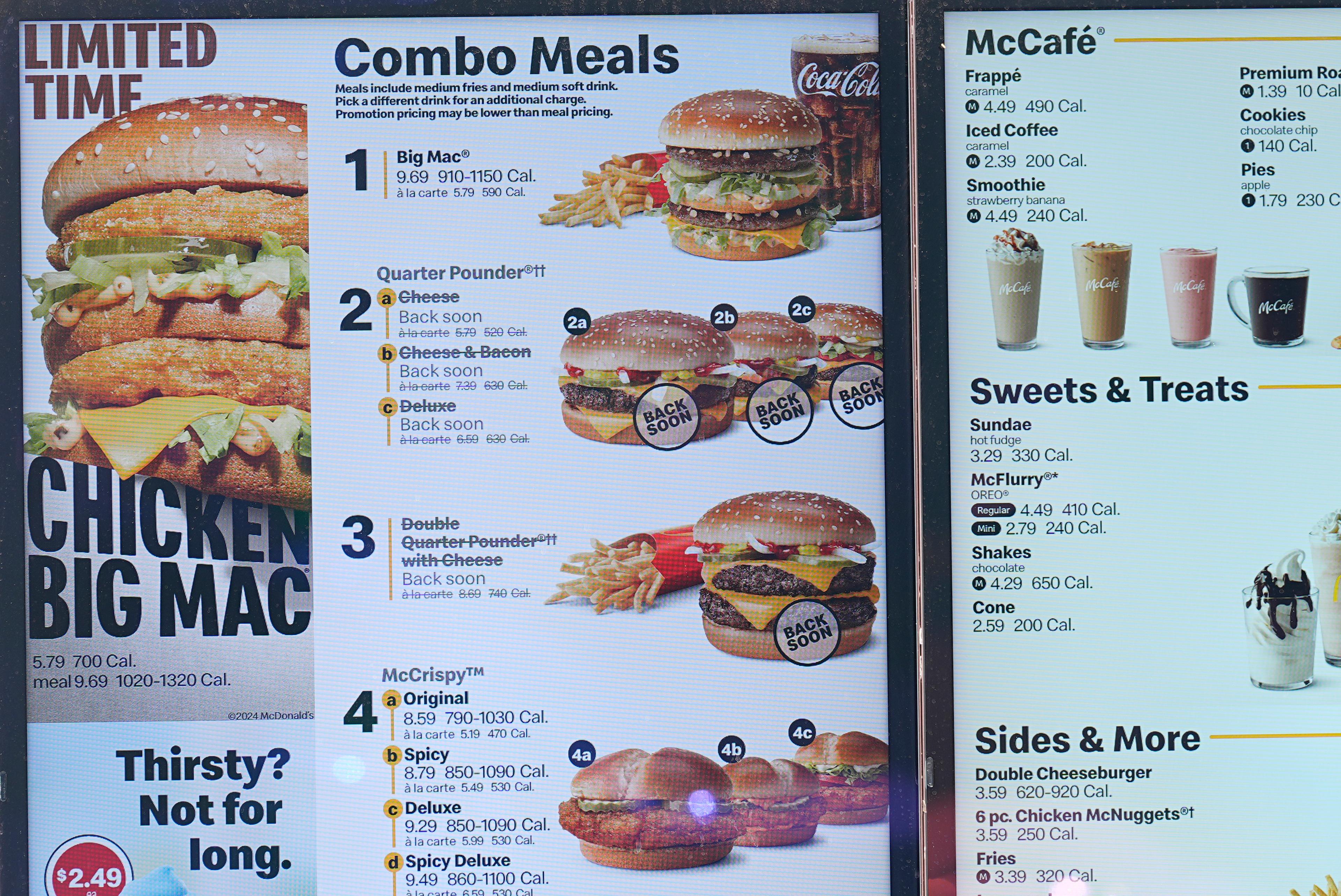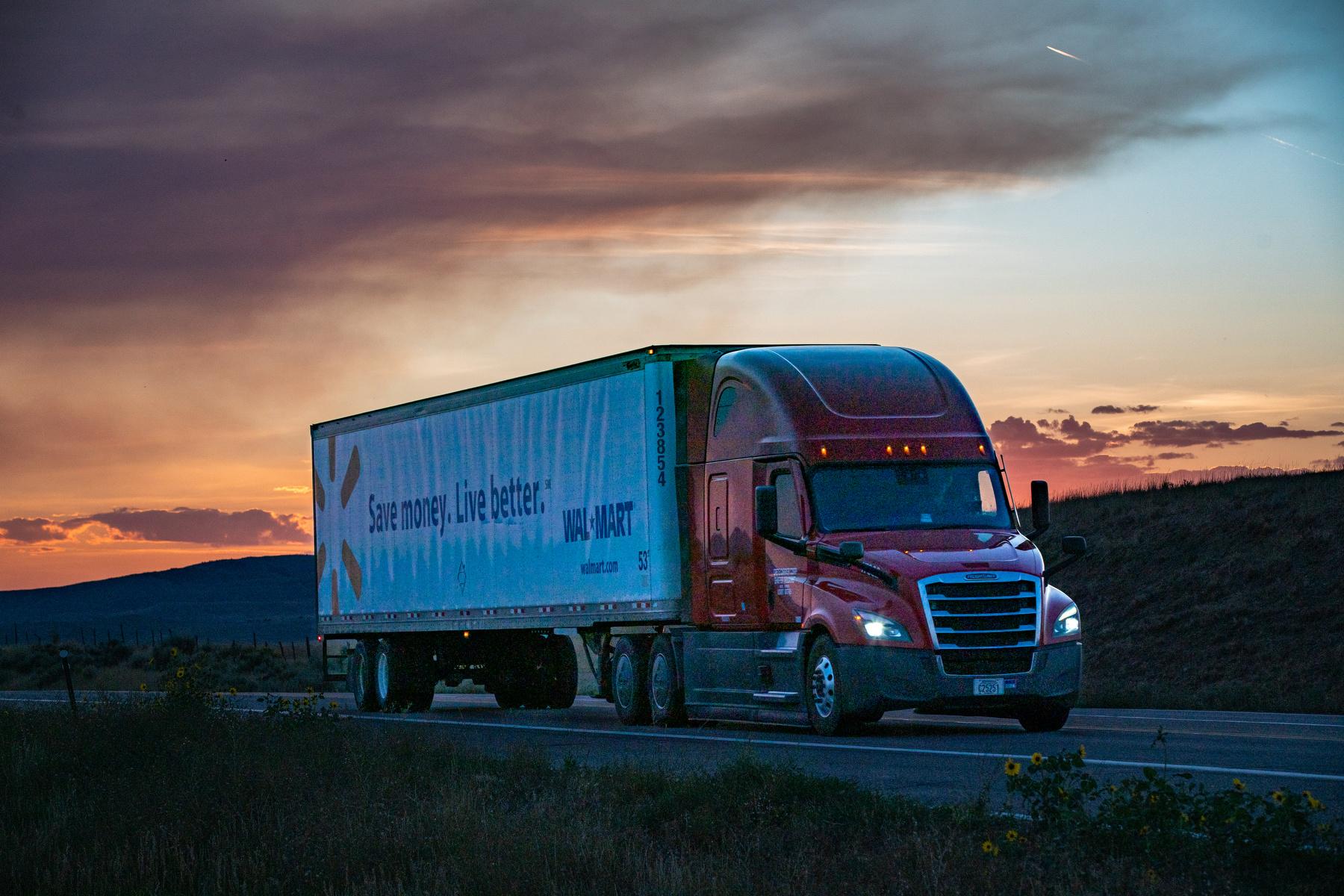
Updated: 4:02 p.m.
An outbreak of E. coli believed to be connected to McDonald’s Quarter Pounders was particularly hard felt in Western Colorado, where more than a dozen residents have become ill and one person died.
In a press release Wednesday and a subsequent interview, Mesa County Public Health noted that at least 10 of the state’s 26 confirmed cases of E. coli were tallied in Mesa County, including the nation’s lone fatality. The county is still waiting on lab genome results for several other sick people to confirm whether they also have E. coli in their systems.
The state health department suspects all Colorado McDonald's locations statewide received ingredients from the same suppliers, so it believes all of the chain’s locations in the state may be affected.
The Colorado cases confirmed so far are from nine counties across the state: Arapahoe, Chaffee, El Paso, Gunnison, Larimer, Mesa, Routt, Teller, and Weld. The infected people may not have eaten at a McDonald's location in the county in which they reside, according to the agency, which said it expects the numbers to change as more cases are investigated.
Federal health data show the first case related to the outbreak was recorded on Sept. 27, and there have not been any new cases confirmed since Oct. 11.
“The person who died was an older adult,” said Dr. Rachel Herlihy, the state epidemiologist. “We know that older adults and young children are going to be most susceptible to severe disease outcomes when it comes to these types of E. coli infections, more likely to develop complications of the infection.”
She said the eight hospitalizations have been in a wide range of age groups, “but we have been fortunate in that we have not had cases among young children in the state.”
She said the youngest cases have been in their teens, “But we do know that the youngest children are going to be most susceptible to severe outcomes. So certainly good that we have not seen that.”
She said the health department began investigating as it saw E. coli cases pop up above the usual baseline level and began investigating, including asking questions of people who reported similar symptoms.
“We do interviews with cases to figure out foods that they may have eaten leading up to the period of time where they became ill,” she said. Investigators will ask questions about what those foods were, when they ate them, and where they ate them “to get a sense if there's any potential links between these cases.”
Then the agency pairs that data with laboratory data, whole genome sequencing or genetic fingerprinting data that gives it even more information and can tell investigators if “these bacteria are genetically related to each other in a way that helps us further put together a picture of a potential outbreak,” she said.
The outbreak was first reported Tuesday and is believed to be connected with onions that are served on the Quarter Pounder, Mesa County officials said in the release, citing the Food and Drug Administration. However, investigators are still looking into the possibility that beef patties were contaminated.
“While the specific source of contamination is still under investigation, early information from the Food and Drug Administration indicates the onions on McDonald’s Quarter Pounders may be a source of this outbreak, Fresh-slivered onions are primarily used on Quarter Pounder hamburgers and not other menu items,” said Erin Minnerath, Deputy Director at Mesa County Public Health, in the release. “USDA is also looking into the beef patties on the Quarter Pounder hamburgers.”
Mesa County Public Health is conducting interviews with residents to further track down the infection source.
“We have local experts on hand with an efficient system in place to handle these situations. This helps with the speed of investigations to help prevent additional people from becoming sick,” Minnerath said.
E. coli is a bacteria found in a lot of places in nature, specifically in the gut bacteria of animals and humans. There are many different varieties, many of which are not harmful, some even theorized to be potentially beneficial as normal gut flora.
“However, there are certain strains of e coli that are particularly pathogenic or likely to cause disease. And so that's what we're seeing here with this outbreak at McDonald's,” said Dr. Daniel Pastula, Professor of Neurology, infectious Disease and Epidemiology at the University of Colorado School of Medicine and Colorado School of Public Health. “This one has proven in the past to be pathogenic or causing disease.”
He said in some cases, infections can prove to be serious, especially for kids under the age of five, people over the age of 65 and those with weakened immune systems. It can cause gastroenteritis, nausea, vomiting, and diarrhea.
“This is not the type of E. coli you want introducing into your body,” he said.
The bacteria makes toxins that can burrow into your intestinal tract. That can cause some bleeding and bloody stool in severe cases, he said. Additionally, because of fluid losses from diarrhea and vomiting, it can cause severe dehydration. Sometimes a person with serious symptoms will be hospitalized, and, while rare, these types of infections can cause kidney failure.
“We think it is caused by those toxins causing a big inflammatory cascade in the smallest blood vessels and causing little blood clots to form. So in some cases, this can be pretty serious,” he said.
The strain is often food-borne, which is why, Pastula said, it’s critical to cook meat to a high enough temperature, avoid cross contamination of foods during food preparation, avoid unpasteurized dairy products, wash hands and clean surfaces.
Everyone investigators interviewed reported eating at McDonald’s before their illness started, specifically saying they’d eaten a Quarter Pounder.
McDonald's told the CDC they proactively removed the slivered onions and beef patties used for the Quarter Pounder hamburgers from stores in the states reporting cases as the investigation goes on. Quarter Pounder hamburgers in some states may be temporarily unavailable, the agency said.
Most strains of E.coli spread through fecal-oral transmission, according to the Cleveland Clinic.
“This happens when bacteria from poop that’s too small to see make their way into your mouth and digestive tract,” it said on its website. Some forms can also be transmitted through undercooked meat and unpasteurized beverages.
It lists the possible ways to get E. coli as contaminated foods, drinking unpasteurized beverages, driving contaminated water or getting it in your mouth, touching poop or contaminated surfaces and not wiping properly after going to the bathroom.
“What you're seeing with the contaminated ground beef or cross contamination with vegetables or whatever is there, may be little small pieces of fecal material in their microscopic level,” that makes its way in the food, said Pastula.
He said pinpointing the exact source of the contamination often requires a complex investigation with local and state public health agencies partnering with the CDC.
“It just shows the importance of having a robust public health response system because these types of outbreaks are never going to completely go away,” Pastula said. “We need to be able to respond quickly and prevent future cases from happening as much as we possibly can.”
This is a developing story and may be updated.









